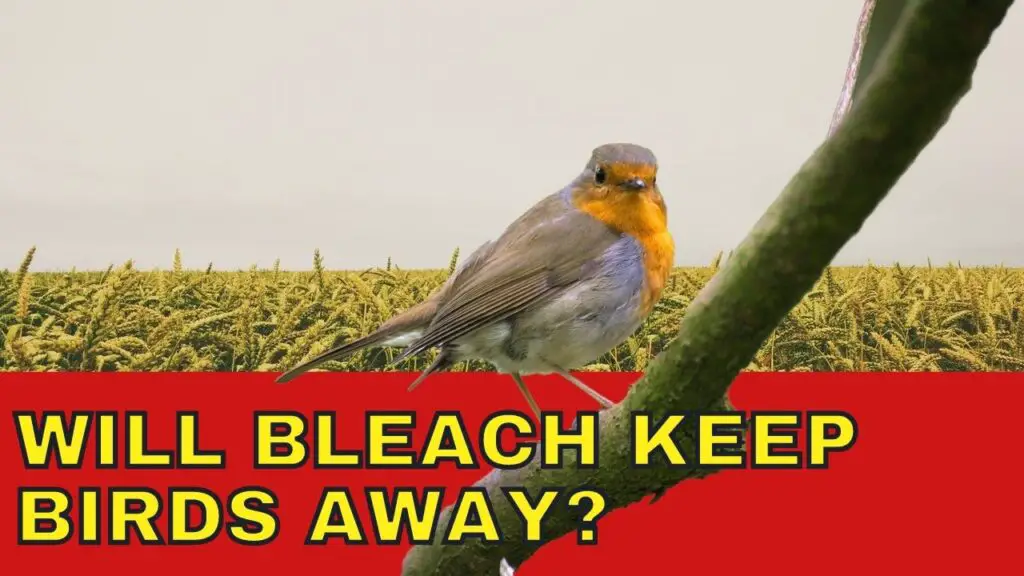If you grow crops, whether commercially or personally, it’s important to keep birds away. Birds enjoy many of the foods humans grow, meaning they may help themselves to lovingly grown vegetables, fruits and salads.
Alternatively, you may have a pond filled with fish that you don’t want your local wildlife to target. You might simply not like birds, and would prefer to keep them out of your garden.
Using spikes, netting or guns should always be avoided when managing this issue. These methods pose significant risk to the health, and ultimately the life, of the birds. A scarecrow may help, but it doesn’t cover as much ground.
There are simpler tricks you can try to keep the crows away from your cabbages and the kingfishers away from your koi.
What smells will keep birds away?
Despite their love for crops, trees and fish, there are certain smells that repel birds. Adding them to the area you’re seeking to protect is cheap and effective.
Garlic is a smell that birds particularly dislike. Littering your patch or pond with cloves is a good way to keep the birds at bay.
Birds hate essential oils. This is convenient, as they are very easy to find at local refill shops. Just be sure not to contaminate your actual vegetables.
There are professional products on the market, designed especially for the purpose of keeping birds from where they’re not wanted.
Using smell deterrents is advantageous when compared to other methods. You can protect hard to reach places, such as corners. They don’t create any noise pollution, which will keep your neighbors happy. The smells are pleasant to humans. Additionally, unlike spikes, they cause no harm to the birds.
Will spraying vinegar keep birds away?
Filling a spray bottle with apple cider vinegar, and spritzing your plants or pond, is an effective method to deter birds. Vinegar’s acidic qualities act as a repellent to birds. The vinegar is safe for humans to consume, and so using it on plants is safe.
Apple cider vinegar is cheap and readily available. Any leftover product can be used to make items ranging from all-purpose cleaner to dandruff treatment, weed killer to dish detergent.
What is the best repellent for birds?
There is little evidence that bleach keeps away birds. The best repellent for birds is a cayenne pepper mixture. Adding cayenne peppers to water, and spraying this onto the valuable site, will deter birds of all sizes. Birds hate cayenne pepper and will avoid areas where they can smell it.
If you have additional money to spend, buy a water sprayer with a motion sensor. These machines will detect when a bird is nearby and spray water accordingly. This has the bonus of spraying water, which helps your plants to grow.
If you’re wanting to banish birds on a budget, you can buy aluminium foil. There are two uses for this common household item. Hanging pieces of foil from trees is one option. Placing strips of foil under the soil works too. Birds are sensitive, and dislike the feeling of the aluminium on their feet and beaks. Foil is loud, too, and spooks them.
Making your garden less bird-friendly will discourage feathered friends from spending time there. Avoid bird tables, bird feeders or bird baths - and remove any you already have. Adding fake predators to the space, such as an ornamental cat, will be effective too. The birds will stay away to keep safe.
Is there a chemical to keep birds away?
There are many chemical bird repellent products available to buy. Be sure that all the products you buy are safe, especially if you’re spraying near foods.
Conclusion
Bleach isn’t the solution to keeping the birds back. There’s very little evidence to suggest it is effective at all, and using this chemical disinfectant could contaminate food. Apple cider vinegar solution, cayenne pepper mixture, garlic cloves and essential oils are all more effective methods you should try. They are cheap products and easy to buy.
Pre-made chemical mixtures are available too, though are more expensive, and can pose a risk to your food if any of the compounds are harmful.
Remember to never use methods that harm the birds, and avoid scaring your local wildlife as much as possible. Deterring them with smell is safest.
